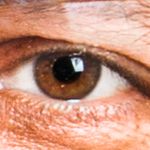- Home
- Stock Contributors
- Discussions
- Re: Old family photos - ownership
- Re: Old family photos - ownership
Old family photos - ownership
Copy link to clipboard
Copied
I have some really cool pictures that have been taken by family memebrs over the last 50 years, some with me in them.
I personally did not take them but have been given to me and are now under my ownership - am I able to upload them? If I scan and edit them? Or any ways to share credit?
A lot of these photos were taken by my mother who is still living.
Some photos were taken by my grandfather who is deceased.
Copy link to clipboard
Copied
The copyright ownership would have to be legally transferred from the original owner (the photographer) to someone else. You can't do that for images from your grandfather until those images enter the public domain, which is a murky area. Here's a webpage that describes when an image becomes public domain:
Public Domain Images—Are You Legally Compliant? - Sidebar Saturdays
Assignment/Transfer of Copyright Ownership (FAQ) | U.S. Copyright Office
Not sure all this legal effort is worthwhile unless you believe the images have commercial appeal.
Copy link to clipboard
Copied
Yes, it felt very much in the grey area and knew there must be some guidelines on this. Thanks for your help!
Copy link to clipboard
Copied
The copyright ownership would have to be legally transferred from the original owner (the photographer) to someone else.
By @Jill_C
The heirs own the copyright. As a general rule, these are all descendants in direct line, first child, then grandchild (if the child is deceased), then the great-grandchildren (if the grandchild is deceased). Famous people create an organisation to handle this and to distribute the revenue. Assets fall into public domain 70 years after the creator's death.
The issue is more with what is represented. If people are shown, they need to sign a model release, whis is obviously not possible if the person is deceased or unknown. Then, looking at the quality of most of the old pictures, even from very famous photographers like Steichen, they are not what Adobe expects. Not that they are of bad quality, but they do not meet the clean digital look of today's pictures.
So, except if @sjxcii finds a vintage stock agency, I do not see any chance to menetize those.
I own a bunch of photos from my father, taken either by his father or by his brothers or pictures that he took himself. Some of them, where I and my siblings are the subject (so we could sign a model release!). They are great pictures for me and my brothers and sister, they may be interesting in an local historical context, but they are absolutely short of any interest for Adobe stock.
Copy link to clipboard
Copied
1. Scans of old photographs are not suitable quality for Stock. 😞
2. Anything published before 1923 is in the Public Domain.
3. Adobe Stock doesn't accept images that are in Public Domain.
4. Whatever you submit to Stock must be 100% your own work or accompanied by signed property releases by all persons or entities who can claim copyright.
Copy link to clipboard
Copied
This helps a lot, thanks!
Copy link to clipboard
Copied
2. Anything published before 1923 is in the Public Domain.
By @Nancy OShea
You are oversimplifying:
Copy link to clipboard
Copied
I'm citing U.S. laws here, as Adobe Stock is a U.S. based company.
That said, when in doubt, contact a copyright attorney in your region.
Copy link to clipboard
Copied
US law has also the 70 years clause after the death of the copyright owner. There are several international treaties that are handling this, so copyright ownership is quite similar everywhere in the world. Similar, not exactly the same!
Adobe stock is a US based company, but the copyright law that is primarily applicable to your creations is where the creation is first published, and the status of adherance to the conventions. Copyright is a complex thing, so even states sometimes err in applying certain copyright.
Your citation of US law is incomplete. That's why I said you are simplifying. It is indeed true that work from before 1923 is in the public domain, but that does not mean that work that has been published after this is still copyrighted.
Adobe is free to create their own rules, but they still need to respect the copyright laws and other laws of all countries where they operate.



